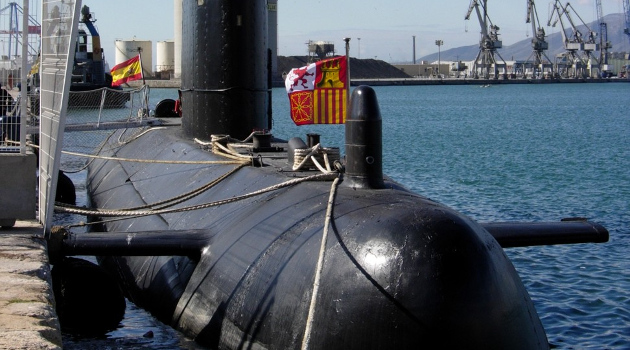I get quite agitated when the folks in Washington make dumb choices that waste money and hinder prosperity.
That being said, I take comfort in the fact that governments in other nations also do stupid things.
I guess this is the policy version of “misery loves company.” And it’s also a source of horror and/or amusement.
 Taxpayer-financed friends for mass murderers in Norway.
Taxpayer-financed friends for mass murderers in Norway.- Financing a giant “Burger Boy” in the United Kingdom.
- Promoting welfare tourism in the European Union.
- Spending $30 to collect $1 of tax in Germany.
- Regulation of coffee enemas in Japan.
So let’s update our collection of “great moments in foreign government.”
We’ll start in China, where a local government proved that incentives mattered.
In March, a man in Zhejiang, China…divorced his wife. He then married his sister-in-law. Shortly after, he divorced her too, in order to marry another sister-in-law. Several other members of the Pan family started to do the same with other relatives and eventually, 11 members of the brood married and divorced each other 23 times over a two-week period. Their motivation?
To cash in on a compensation scheme… As part of an urban village renovation project, those living in the area are given a minimum compensation of one 40-square meter apartment, even though they didn’t own property. This was provided to any family whose hukou (household registration) was filed by April 10. But the Pan family learned that they could game the process by getting married, registering as residents of the village, and divorcing to do it again… By doing so, each family member would get their own household registration, which means more compensation. …The 11 family members involved have been arrested… Upon interrogation, one suspect said they didn’t think there was anything illegal with what they were doing.
I wonder if the Chinese government will learn anything about incentives from this episode.
Maybe, just maybe, it will then apply those lessons to tax policy (at the very least, by ignoring poisonous advice from the IMF and OECD).
In Spain, we re-confirm that governments are just as capable of wasting money on defense spending as they do on domestic programs.
A new, Spanish-designed submarine has a weighty problem: The vessel is more than 70 tons too heavy, and officials fear if it goes out to sea, it will not be able to surface. And a former Spanish official says the problem can be traced to a miscalculation — someone apparently put a decimal point in the wrong place.
“It was a fatal mistake,” said Rafael Bardaji, who until recently was director of the Office of Strategic Assessment at Spain’s Defence Ministry. The Isaac Peral, the first in a new class of diesel-electric submarines, was nearly completed when engineers discovered the problem. …The Isaac Peral, named for a 19th century Spanish submarine designer, is one of four vessels in the class that are in various stages of construction. The country has invested about $2.7 billion in the program. The first was scheduled to be delivered in 2015 but the Spanish state-owned shipbuilder, Navantia, has said the weight problems could cause delays of up to two years.
Last but not least, we travel to Germany, where the government is trying to outdo New York City for the prize of most over-budget infrastructure boondoggle.
As a structure, it looks impressive enough. Until you pause, look around you, and absorb the silence. This is Berlin Brandenburg…, the new, state-of-the-art international airport… It is a bold new structure, costing billions, and was supposed to be completed in 2012. But it has never opened. BER has become for Germany not a new source of pride but a symbol of engineering catastrophe. …a “national trauma” and an ideal way “to learn how not to do things”. No passengers have ever emerged from the railway station,
which is currently running only one “ghost train” a day, to keep the air moving. No-one has stayed at the smart airport hotel, which has a skeleton staff forlornly dusting rooms and turning on taps to keep the water supply moving. …Huge luggage carousels are being given their daily rotation to stop them from seizing up. …The company running the airport promises it will finally open next year, which would make it at least eight years late as well as billions over budget. …So what on Earth has happened…? politicians…set up a company to build an ambitious new airport. “The supervisory board was full of politicians who had no idea how to supervise the project,” says Prof Genia Kostka, of the Free University of Berlin. “They were in charge of key decisions.” …the politicians supervising the airport…insisted new departure gates were added to accommodate giant Airbus A380 aircraft, whose production has ended before the airport can open. …the overall cost of the project will be 6bn euros (£5.3bn) – if it opens as planned next year – up from an original projection of about 2bn euros. The final sum will be paid mostly by German taxpayers.
Of course taxpayers will get stuck with the tab. That’s the ongoing scam we call government.
But there is another question to ponder:  How can a nation that is so aggressive (not to mention dogmatic and inventive) about collecting taxes be so incompetent at spending money?
How can a nation that is so aggressive (not to mention dogmatic and inventive) about collecting taxes be so incompetent at spending money?
The bottom line is that waste seems to be an inevitable part of government, regardless of the nation or the continent.
The moral of these stories, both from America and around the world, it that government is not the answer.
Unless, of course, you’ve asked a really strange question.
———
Image credit: Eugenio Castillo Pert | CC BY-SA 3.0.

